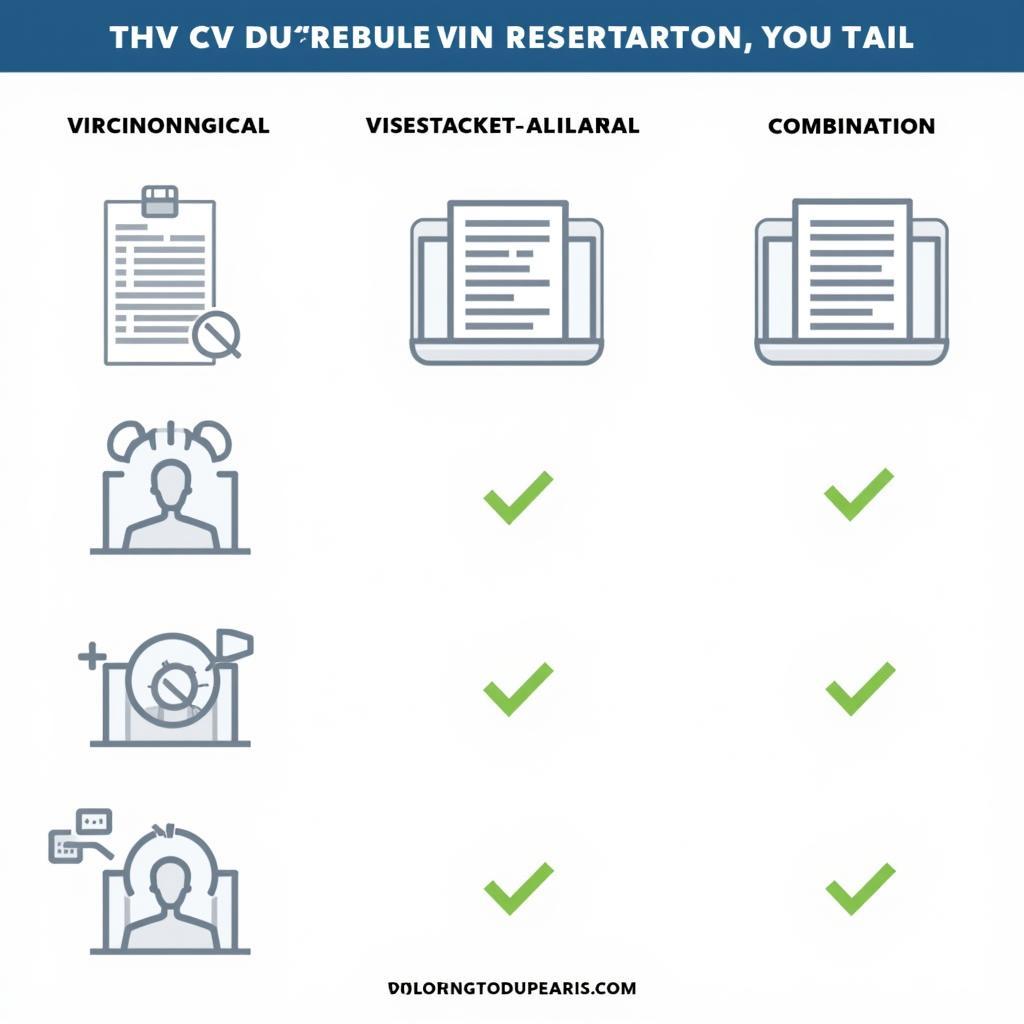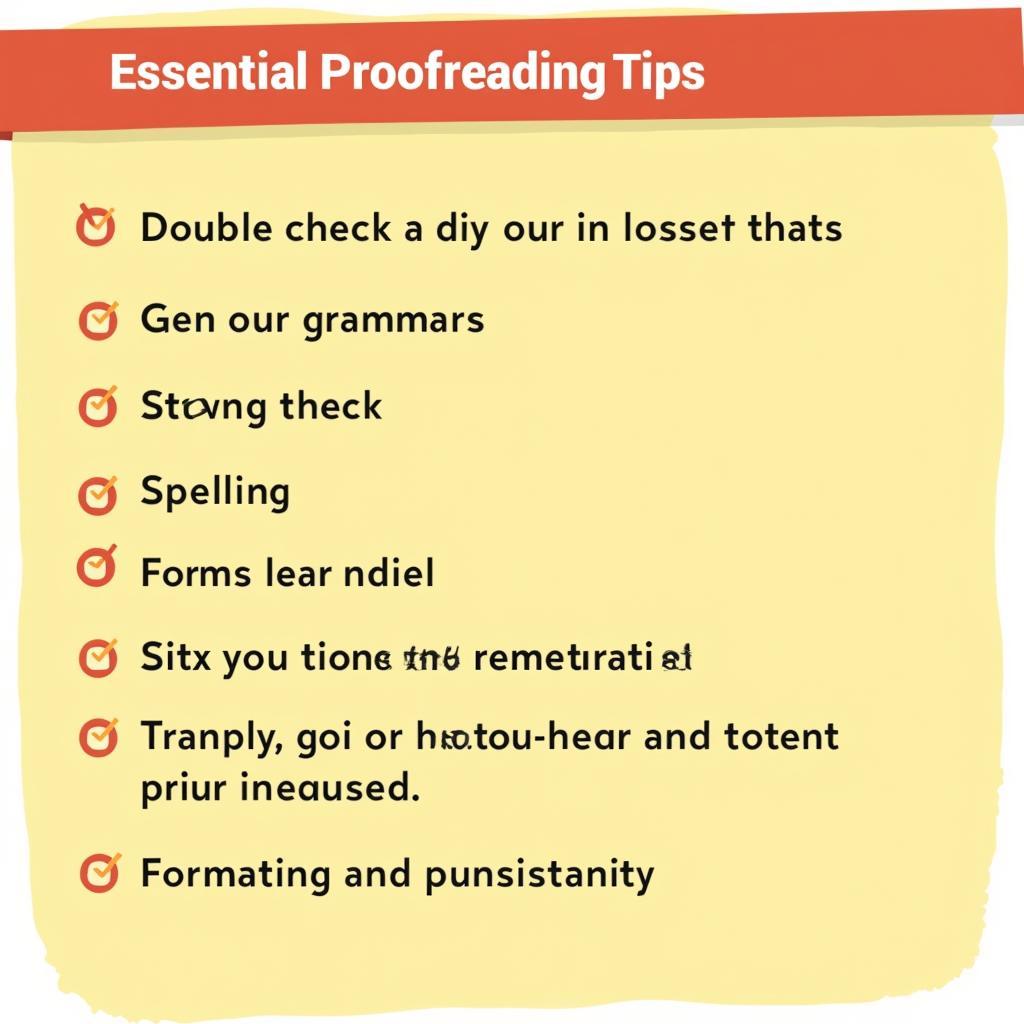A well-crafted CV is your key to unlocking career opportunities. This guide provides actionable advice and insider tips to help you create a CV that stands out from the competition, whether you’re a seasoned professional or just starting your career journey. We’ll cover everything from choosing the right format to tailoring your CV for specific roles, ensuring your application leaves a lasting impression.
Understanding the Purpose of a CV
Your CV, or curriculum vitae, is a detailed overview of your professional qualifications, experience, and achievements. It’s your first impression on potential employers, showcasing your skills and demonstrating why you’re the ideal candidate. A strong CV effectively communicates your value proposition and compels recruiters to learn more.
Choosing the Right CV Format
The best CV format depends on your experience and career goals. The three most common formats are:
- Chronological: This classic format lists your work experience in reverse chronological order, highlighting career progression. It’s ideal for individuals with a consistent work history.
- Functional: This format emphasizes skills and abilities, making it suitable for career changers or those with gaps in their employment history.
- Combination: This format blends elements of chronological and functional formats, showcasing both skills and experience. It’s a versatile option for many job seekers.
 Comparing Different CV Formats
Comparing Different CV Formats
Crafting a Compelling CV Profile
Your CV profile, also known as a personal statement or career summary, is a brief introduction highlighting your key skills and experience. It should be concise, engaging, and tailored to the specific job you’re applying for. A strong profile captures the reader’s attention and encourages them to delve deeper into your CV.
Showcasing Your Work Experience
When describing your work experience, focus on accomplishments rather than simply listing responsibilities. Use the STAR method (Situation, Task, Action, Result) to quantify your achievements and demonstrate the impact you made in previous roles. Provide specific examples and data to support your claims.
 Example of Work Experience Section in a CV
Example of Work Experience Section in a CV
Highlighting Your Skills
Your skills section should showcase both hard and soft skills relevant to the target job. Tailor this section to each application, emphasizing the skills most sought after by the employer. Use keywords from the job description to ensure your CV aligns with the recruiter’s requirements.
Education and Qualifications
List your educational qualifications in reverse chronological order, including degrees, certifications, and relevant training. If you have extensive experience, you can shorten this section, focusing on the most relevant qualifications.
Additional Sections
Consider including additional sections to further enhance your CV, such as:
- Awards and Recognition: Highlight any achievements that demonstrate your skills and expertise.
- Volunteer Experience: Showcase your commitment to community involvement and any transferable skills gained.
- Languages: List any languages you speak fluently, including proficiency levels.
Proofreading and Editing
Before submitting your CV, thoroughly proofread it for any errors in grammar, spelling, and punctuation. A polished and error-free CV demonstrates attention to detail and professionalism.
 Tips for Proofreading Your CV
Tips for Proofreading Your CV
Conclusion
Creating a winning CV requires careful planning and attention to detail. By following these guidelines and tailoring your CV to each specific job application, you can significantly increase your chances of landing an interview and ultimately securing your dream job. Remember to focus on your accomplishments, highlight your relevant skills, and present your information in a clear and concise manner. Good luck with your job search!
FAQ
- What is the ideal length for a CV? Aim for 1-2 pages, focusing on the most relevant information.
- Should I include a photo on my CV? This depends on the cultural norms of the country where you’re applying.
- What file format should I use for my CV? PDF is the preferred format, ensuring compatibility across different devices.
- How often should I update my CV? It’s recommended to review and update your CV regularly, especially before applying for new jobs.
- Can I use a CV template? Yes, but personalize it to reflect your unique skills and experience.
Need support with crafting your perfect CV? Contact us at Phone Number: 0372960696, Email: TRAVELCAR[email protected] or visit us at 260 Cầu Giấy, Hà Nội. We have a 24/7 customer support team.
Explore other helpful articles on our website:
- Guide to writing a cover letter
- Interview tips and techniques
We are here to help you every step of the way in your job search journey!

